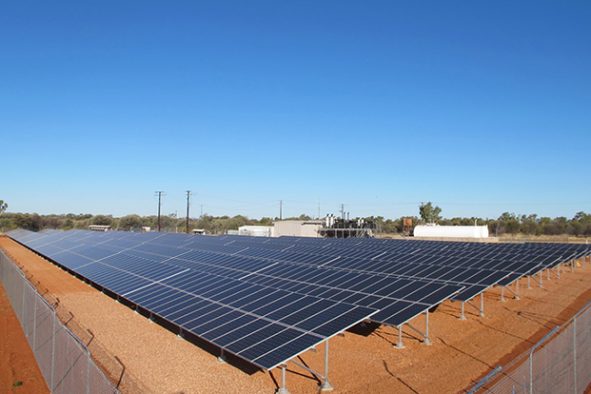The Northern Territory Labor party has promised to adopt a renewable energy target of 50 per cent by 2030, in new policy detail released ahead of the NT’s August 27 election that they are expected to win easily.
The proposed target would put the NT in line with most other Labor state’s and territories in Australia – as well as federal Labor – and puts it ahead of the federal Coalition government, which is aiming for just 23 per cent renewables in 2020, with no target set for beyond that date.

Giles has also weighed in on the South Australian “energy crisis”, pointing the finger at the Labor governed state’s high penetration of renewables as the main driver of high power prices and using this incorrect assessment of the situation to push his plans for gas power expansion.
In a media statement released on Sunday, the NT’s Labor leader, Michael Gunner, said that his party – if elected – would put in place a long-term plan to combat climate change, including an energy policy that transitions the Territory from fossil fuels to renewables.
As well as adopting the ambitious new renewables target, Gunner said his government would commission a Roadmap to Renewables report, to be delivered next year and establish a dedicated renewables department to advise on the technological, financial and legal requirements to achieve the target.
Gunner also said Labor would provide ongoing R&D funding to support the renewables roll-out, retain government ownership of the Territory’s power and water utilities, and guarantee that any electricity price rises were capped at CPI.
Funding was also promised to boost rooftop solar installation across the Territory ($5m) and to further the development of Alice Springs as “the Centre for Excellence for Solar Energy” ($5m).
And, perhaps in recognition of the situation in South Australia, Gunner also said his government would ensure that the territory’s gas-fired power generation continued “to provide base and peak load power during the transition to renewables.”
As Gunner notes, the current NT government, the CLP has no renewable energy target or policy of note, at this stage.
